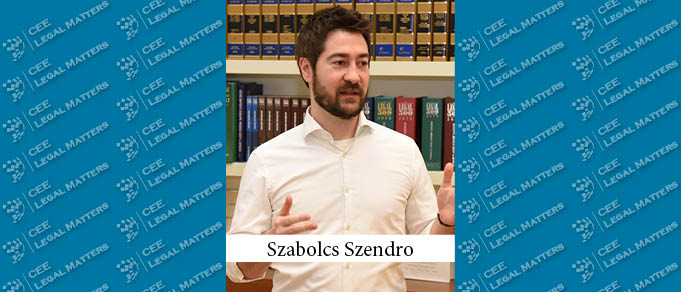Increased awareness of competition law in the past few years, alongside the evolving legislative framework and practice on the EU level, has led to the continuous growth of CMS’s competition law practice, according to CMS Partner Szabolcs Szendro.
“Competition law is a very special area of law, requiring comprehensive analysis of business, market, and economy,” Szendro explains. “While legislation remains largely static, providing the prohibition of cartels and abuse of dominance, compliance-related case-law and practice on a national and EU level are ever-evolving.” The Competition Authority, for example, had to investigate the increase of prices over the past few months due to the pandemic, and “we had to keep up with the updated reality,” Szendro adds.
The work of CMS’s Budapest office involves a different set of activities in that regard. “The Competition Authority initiates the investigation of alleged cartel infringements against companies, searching the premises and seizing their documents. We have to mirror each aspect of screening with forensic software and specific investigation techniques, in order to represent these companies in the respective proceedings,” Szendro says. “It is usually followed by a proceeding before the administrative courts, with the cooperation of our litigation department, as the representation of the clients in these lawsuits requires specific knowledge and competence from both sides.”
According to Szendro, the Hungarian competition practice has undergone some changes in the recent past. “New management of the Competition Authority has promoted wider investigation policies in different markets. Unlike the previous approach, which was rather focused on investigating the potential infringements, the primary change is to study and understand the markets and initiate the investigation procedures only afterward,” he explains. “It is not yet clear how they want to use the huge datasets collected so far, during the two recently instigated sector inquires – one regarding the beverages market and the other regarding media and broadcasting. We represent many clients in these fields, so this requires caution,” he adds.
In addition, the increased awareness regarding competition-related issues and the need to prevent such lawsuits in Hungary has been a further driver of this practice. “The companies realized that they need to develop and invest in this area, not only by hiring compliance specialists but also competition lawyers who analyze the business, understand the key risk areas, and then work a solution upward,” noted Szendro, adding that it led CMS to the decision of further developing its competition team with specialists and a partner dedicated to the area.
Looking ahead, Szendro believes that the competition sector will remain active, as market analysis by the Competition Authority will most likely have follow-up cases. In parallel, he thinks that consumer protection has been highly active in the past few years. “Another area we expect higher growth in is the private damages actions. Even though most companies in Hungary are not fully aware of that option to claim damages against a competition law infringer, we still expect that cases will multiply with the increased awareness in the coming years,” he concludes.

















